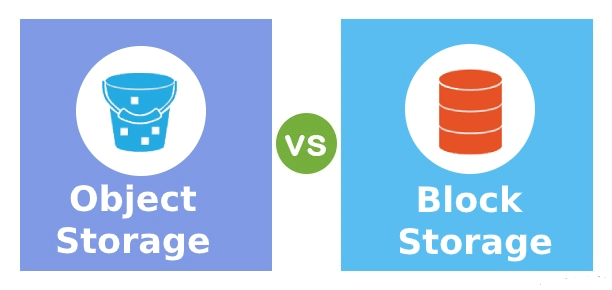In the realm of cloud computing and data storage, two powerful contenders, object storage, and block storage, vie for supremacy, each offering unique advantages and catering to diverse use cases. Deciding between these two storage solutions is critical for businesses seeking to optimize their data management strategies. In this article, we will delve into the nuances of object storage vs block storage, exploring their distinctive characteristics, benefits, and scenarios where they excel, empowering readers to make informed storage choices.
Understanding Block Storage
Block storage operates at the level of individual data blocks, much like traditional hard drives in computers. Each block has its own address and can be read or written independently. Block storage solutions provide raw storage volumes that can be attached to servers, presenting themselves as logical units for data access.
Key Characteristics of Block Storage
- Direct Access: Block storage enables direct access to data blocks, facilitating quick and efficient read and write operations. It is well-suited for applications that require low-level data access, such as databases and virtual machines.
- Fixed Size Volumes: Block storage volumes are provisioned with fixed sizes, and users must allocate the precise amount of storage required for their applications.
Understanding Object Storage
Object storage, on the other hand, stores data as objects, each assigned a unique identifier. These objects contain both data and metadata, and they are stored in a flat address space, accessible via a unique URL or API call. Object storage solutions are designed to handle vast amounts of unstructured data, making them an ideal choice for storing files, images, videos, and backups.
Key Characteristics of Object Storage
- Scalability: Object storage is highly scalable and can accommodate massive amounts of data with ease. It is particularly well-suited for applications with exponentially growing storage needs and those that require data redundancy and high availability.
- Flexible Storage: Object storage offers the flexibility of storing data of various sizes without the need for allocating fixed storage volumes.
Object Storage vs. Block Storage Identifying the Right Fit
Use Cases for Block Storage:
- Database Management: Block storage’s direct data access makes it ideal for databases that require low-latency and fast read and write operations.
- Virtual Machines: Applications that rely on disk-like storage systems, such as virtual machines, benefit from block storage’s performance and low-level access.
- Transactional Workloads: Block storage is suitable for workloads with frequent data updates and real-time processing requirements.
Use Cases for Object Storage
- Unstructured Data: Object storage excels at managing large volumes of unstructured data, including media files, documents, and backups.
- Cloud-Native Applications: Cloud-native applications that utilize RESTful APIs to access data benefit from object storage’s scalability and flexibility.
- Content Distribution: Object storage is well-suited for content delivery networks (CDNs) and media streaming services, enabling efficient content distribution to global audiences.
In the ever-evolving landscape of cloud storage, the choice between object storage and block storage significantly impacts data management and performance optimization. Block storage’s direct access and fixed-size volumes cater to databases and virtual machines, while object storage’s scalability and flexible storage options accommodate unstructured data and cloud-native applications.
Understanding the unique characteristics and use cases of object storage and block storage empowers businesses to make informed decisions, aligning their storage choices with specific application demands and growth trajectories. By unraveling the storage dilemma and choosing wisely between object storage and block storage, organizations can unlock the full potential of cloud storage, ensuring a seamless and efficient data storage experience.


